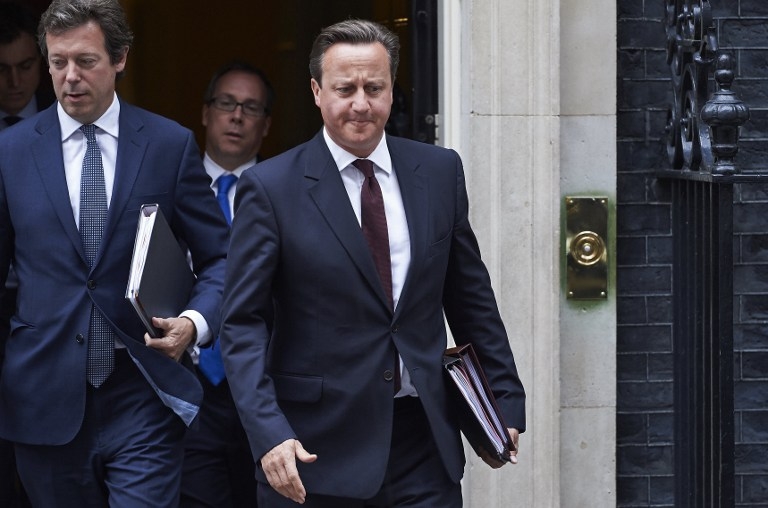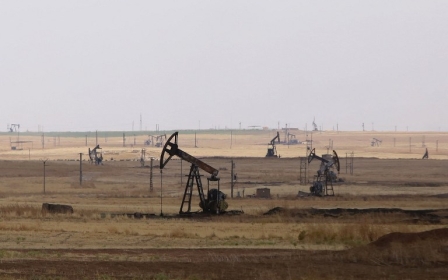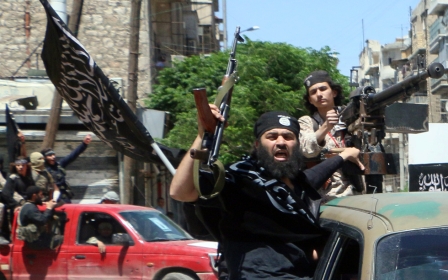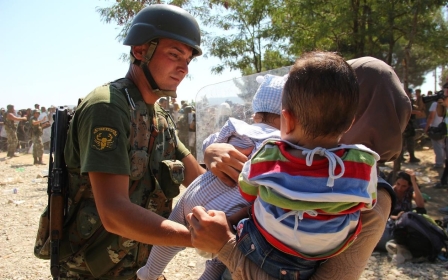UK killed British member of IS with airstrike in Syria: Cameron

A British member of the Islamic State group who was plotting attacks against the UK was killed by British airstrikes in Syria, Prime Minister David Cameron told the House of Commons on Monday.
Reyaad Khan, 21, who was killed in an RAF drone strike in Raqqa on 21 August, was planning attacks, including on a number of high-level commemorations, on the UK, Cameron said.
In addition to Khan, who was from Cardiff, two other IS fighters were killed in the strikes that day, including British citizen Ruhul Amin.
"We should be under no illusion. Their intention was the murder of British citizens. So on this occasion we ourselves took action," the prime minister said.
In the speech, Cameron also announced that the UK will now take 20,000 Syrian refugees over then next five years and suggested that the government may propose to join coalition airstrikes in Syria, a strategy which would be subject to a parliamentary vote.
The strike that killed Khan, the prime minister underlined, was not part of the coalition strikes.
"In this area, there is no government we can work with. We have no military on the ground to detain those preparing plots. And there was nothing to suggest that Reyaad Khan would ever leave Syria or desist from his desire to murder us at home," Cameron said. "So we had no way of preventing his planned attacks on our country without taking direct action."
While the UK has used drones in Afghanistan and Iraq, Cameron confirmed that this is the first time that the UK has attacked its own citizens in countries with which it is not at war.
20,000 Syrian refugees by 2020
After announcing on Friday that the UK would take in "thousands more" Syrian refugees, Cameron announced on Monday that Britain will take 20,000 Syrians from camps near the war-torn country's borders.
"In doing so, we will continue to show the world that this country is a country of extraordinary compassion, always standing up for our values and helping those in need," Cameron said.
Britain will continue to take refugees from the camps and from elsewhere in Jordan, Lebanon and Turkey, he said.
"This provides refugees with a more direct and safe route to the UK, rather than risking the hazardous journey to Europe," explained Cameron.
Britain will give priority to vulnerable refugees such as orphans, according to the prime minister.
Cameron has been under pressure internationally and domestically to address the refugee crisis, and Monday vowed to "help to stabilise countries where the refugees are coming from".
He said he would "seek a solution to the crisis in Syria, push for the formation of a new unity government in Libya and bust the criminal gangs."
Charity Oxfam welcomed Cameron's announcement, calling it an important first step.
"It will give much needed respite to people fleeing horrors most of us can only imagine," said Mark Goldring, Oxfam's chief executive. "This is a good step forward, but its far from job done."
Britain has accepted 216 Syrian refugees under its 'Vulnerable Persons Relocation Scheme' launched in early 2014 and one which is separate from the UN High Commissioner for Refugee's resettlement programme.
More than 4,000 other Syrians have been granted asylum since the conflict there broke out in 2011. Altogether, the 5,000 or so Syrians granted asylum in the UK are far fewer than countries like Germany and Sweden.
Britain has also opted out of a quota system for relocating asylum seekers within the EU despite growing calls from member countries for fairer distribution.
New MEE newsletter: Jerusalem Dispatch
Sign up to get the latest insights and analysis on Israel-Palestine, alongside Turkey Unpacked and other MEE newsletters
Middle East Eye delivers independent and unrivalled coverage and analysis of the Middle East, North Africa and beyond. To learn more about republishing this content and the associated fees, please fill out this form. More about MEE can be found here.




